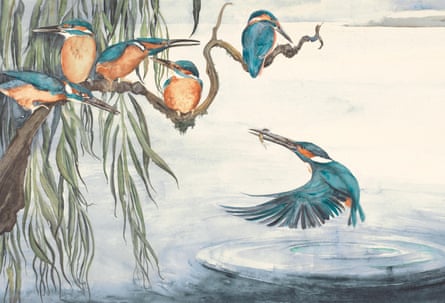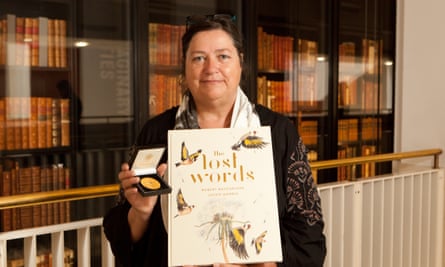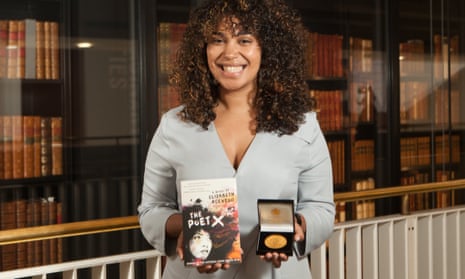Dominican-American slam poet Elizabeth Acevedo has become the first ever writer of colour to win the UK’s most prestigious children’s books award, the Carnegie medal, which has a history stretching back to 1936 and includes Arthur Ransome, CS Lewis and Neil Gaiman among its former winners.
Acevedo, the daughter of Dominican immigrants, took the medal for her debut, The Poet X. A verse novel, it tells of a quiet Dominican girl, Xiomara, who joins her school’s slam poetry club in Harlem and is, according to the judges, “a searing, unflinching exploration of culture, family and faith within a truly innovative verse structure”. Xiomara “comes to life on every page and shows the reader how girls and women can learn to inhabit, and love, their own skin”.
The book is dedicated to “all the little sisters yearning to see themselves”, and one of her former students in particular. Acevedo was an eighth-grade English teacher in Maryland when the impetus for the novel struck her: one of her students, Katherine, wouldn’t read any of the books Acevedo offered her, telling her : “None of these books are about us.”
So Acevedo set out to write “a story that sounds like and depicts the same kind of neighbourhood” she and her students are from. “When your body takes up more room than your voice / you are always the target of well-aimed rumors, / which is why I let my knuckles talk for me,” she writes in The Poet X. “I’ve forced my skin just as thick as I am.”
“This was a girl who physically seemed to be taking up so much space but felt she had to be withdrawn, she was afraid to push the boundaries,” Acevedo said. “Her body takes up so much attention it would be easy to forget all the things she’s thinking, things she won’t say. I wanted to be really close to those feelings and show the everyday magic and beauty that quiet folks can hold.”
Acevedo is no longer a teacher but she returns to the school where she taught every year, and knows that her former students, including Katherine, have read her novel. In her speech after winning the medal she said:“I felt like this student had given me a challenge, or at least permission to to write a story about young people who take up space, who do not make themselves small, who learn the power of their own words.”
Acevedo’s win comes two years after the prize instigated an independent review into its historical lack of racial diversity, following widespread anger at 2017’s 20-book, entirely white longlist. After interviews with more than 600 people, from librarians to children, the review concluded that the UK’s overwhelmingly white librarian workforce, who nominate books for the medal, were mostly unaware of titles by writers of colour. It also found a dearth of books by writers of colour were being published in the UK.

Tuesday’s ceremony also saw the illustrator Jackie Morris win the Kate Greenaway medal for illustration for The Lost Words, a response to the Oxford Junior Dictionary’s decision to remove everyday nature words such as “acorn”, “bluebell” and “kingfisher”, as they were not being used enough by children. The book, written by Robert Macfarlane, features his poems alongside Morris’s images of the excised words and has become a cultural phenomenon, with members of the public raising funds to ensure schools around the country have copies.
Alison Brumwell, who chaired the panel of librarians who picked the winners, called it an “astonishing book which deserves the highest accolades”.
“The illustrations test our acuity and make us all think on a much deeper level about scale, colour and proportion; also, about representations of loss and absence. We are invited to ‘read’ on more than one level and to reflect upon a world in which change can mean irreparable loss, impoverishing both language and the environment,” said Brumwell.

Morris said that she believes the response to The Lost Words has been so strong because “instinctively, we know that we are not separate from nature, we’re part of it”.
“Certainly in urban environments, we’ve almost divorced ourselves from a close connection with it, and I think there is a hunger to return to those connections – and it’s also an enormous necessity,” she said.
Morris ended her acceptance speech on Tuesday with a call to her fellow authors and illustrators, artists and musicians “to help to tell the truth about what is happening to this small and fragile world we inhabit, to re-engage with the natural world, to inspire and to imagine better ways to live.
“Because there is no Planet B and we are at a turning point. And because in order to make anything happen it first needs to be imagined. And as writers and illustrators for children we grow the readers and thinkers of the future,” she said.
